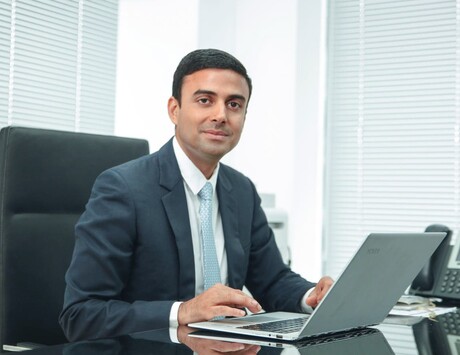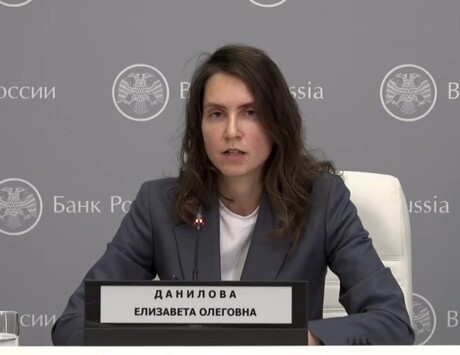It’s easy to forget how much of a risk it was to launch a newspaper in the aftermath of a global financial crisis. Here, i owner Evgeny Lebedev remembers waiting at the print site for that very first edition
An experienced and successful newspaper proprietor rang our chairman on day one and said “You must be f***ing joking. You will do between 15,000 and 40,000 [copies]. What do you think you’re doing?” He wasn’t the only one with what you might call doubts. Everybody said we were mad, and to be honest I thought they might be right.
If you cast your mind back to the summer of 2010, Britain and indeed the world were still in crisis management mode after the financial crash. The advertising industry on which we in the media so depend, often a good barometer of business confidence more broadly, had taken a hammering and the prevailing orthodoxy, which by then had been around for several years, said print was dead. Just as launching The Independent in 1986 took remarkable courage and conviction, so launching this newspaper in that context was, to put it mildly, rather counter-intuitive. And for quite some time after we launched, all of us had a few dark nights of the soul, in which we questioned whether or not we’d been reckless in launching a newspaper – that is, news printed on paper, which people actually pay for, in shops – in such a despondent environment.
Yet at the core was an idea, a product, which fundamentally made sense then and – given you’re reading these words five years on – makes sense now.
I would say there were three things that make this newspaper so appealing. First, of course, the price, which meant not just saving several pounds a week, but getting rid of the buyers’ remorse that is such a pain for people who pay over £1 for newspapers every day, and then feel very guilty when they see unread pages in the paper basket at the end of the week. Second, there was the unique interactivity of the paper. The Letter from the Editor on page 3, superbly done by our brilliant Oliver Duff (the youngest in Fleet Street), was a very clever innovation. More than with most papers, this one is a conversation with readers rather than a lecture at them.
And third, and by some margin most important, there was the combination of concision with quality: the idea of “all you need to know”. All the evidence is emphatically clear: the idea of a quality daily briefing, which leaves readers informed and entertained, is the signature achievement of this newspaper.
The internet and rolling news have created a deluge of information and what this paper does is edit the world for you, the readers. That takes real skill and intelligence and it’s no wonder that the matrix pages – another very smart innovation – are among the most popular.
Not that we knew it straight away. What looks like genius now seemed for a while like a modern kind of madness. I remember looking at the first few designs and thinking: “That’s... interesting.” It was certainly a distinctive offering; different to everything else in the market. But how do we know if it will sell?
The confidence of our senior team was reassuring, but even they knew this was a leap of faith.
The weeks, days and minutes leading up to the first national newspaper launch in Britain for decades were an anxious time.
We couldn’t tell many people, because if the news leaked our rivals might steal a march on us. (Some of them later tried; I know one group got to the stage of dummy copies with their rival to i.) There was a small room within our office where designs came together on screen and off. The room was shrouded in darkness.
A couple of times I turned up at the office to see proofs. I was very conscious that the staff were thinking: “Oh look, the publisher’s turned up and gone into a small dark room with the top brass. Presumably they’re not talking about the price of fish.”
None of us who were there will ever forget launch night. I went off to the printers and was in contact with a few of the editorial team. You never know what could go wrong. Printing newspapers is a very mechanical task. Will the printers cope with this new load? Will the ink come out properly on the paper? Have we remembered to put the price on the front page?
In the event, it was okay. I went up to our print sites in Watford to pluck the first copies off the belt. They had a wonderfully familiar smell and I suddenly became nostalgic for the old days of print – not that I was there myself – when hot metal plates clanged into each other and the hum of the printers filled an entire factory.
A few months later, the sales hadn’t kicked on as we hoped. This great project was in danger of petering out as an also-ran. If we couldn’t boost the sale, we’d lack both the cover price revenue and the advertising to justify our investment, let alone cover the costs of printing and distribution. Then we did a smart thing. We asked you guys what you thought of the paper. And your response was overwhelming.
Time poor and cash poor too – this was the age of austerity, after all – you loved a paper that combined concision with quality. Many of you were lapsed readers; many had switched over from quality titles other than The Independent. Together with this we had research that showed awareness of i remained very low, with less than half of newspaper readers knowing the paper existed. This information put fire in our proverbial loins. We invested over a million pounds in television advertising, convinced that would do most to boost awareness. And sure enough, with the ads on every night, the sales started to rise. And rise – and rise. Could we get close to The Guardian? Yes! Could we overtake it? Certainly. Could we charge on and sell many tens of thousands more every day? As Barack Obama used to say, Yes We Can.
The fact is, we couldn’t have done any of this if you hadn’t encouraged us. It may seem rather trite or contrived for a publisher to thank readers, but I mean it when I say that your feedback, affection and loyalty has been our driving force – and for that, I am grateful to each and every reader. You’ve stuck with us through price rises, and I very much hope you continue to get a daily newspaper you treasure.
I also want to publicly thank our editorial and commercial teams, from sub-editors to the ad sales teams. If nothing else, we have proved that in the modern media as in so much else, there is a very fine line between madness and inspiration. And when it comes to i, I’d say we alighted on the latter, and hope you agree.
Evgeny Lebedev is the owner of i, The Independent, The Independent on Sunday and the London Evening Standard



